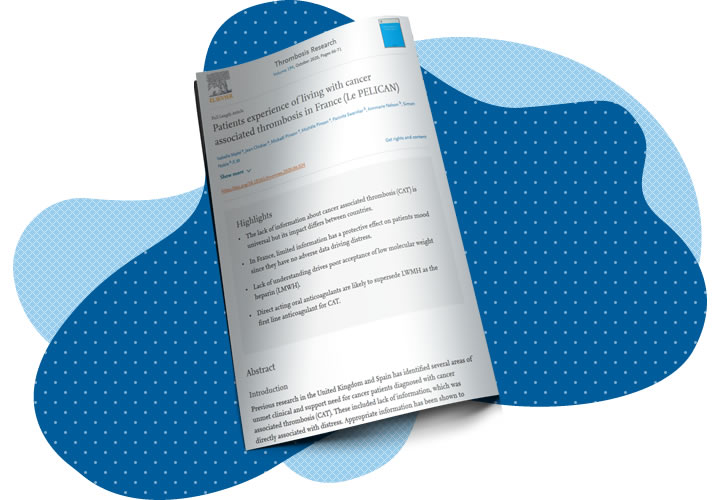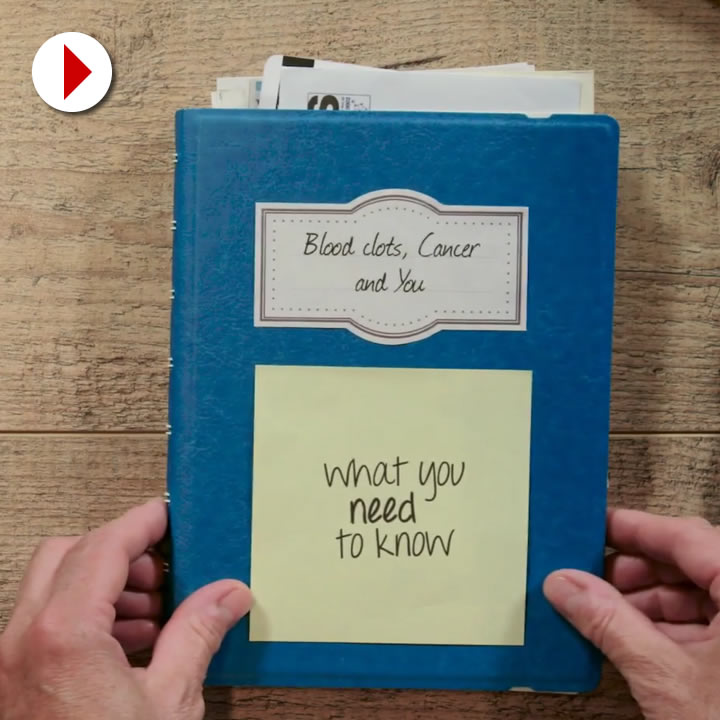Cancer & VTE
Venous thromboembolism (VTE) can be a significant risk factor for patients diagnosed with cancer.

This is because of a number of reasons. Cancer can cause the blood to become ‘sticker’ – or more likely to clot. Certain types of cancer also increase the risk of blood clots, more than other forms of cancer, and more than others, and some treatments for cancer can also increase the risk of VTE.
Too often, patients diagnosed with cancer are also not well informed about VTE, risk factors, their risk and the signs and symptoms of VTE. It is important that following a diagnosis of cancer, individuals talk to their clinician about their risk of VTE and ask for information on how risk can be reduced and what to do if they recognise possible signs of a blood clot.
This film helps to share further information:

Patient Experience of Living With Cancer Associated Thrombosis in France (Le PELICAN)
Isabell Mahe, Jean Chidiac, Mickael Pinson, Parinita Swarnkar, Anne Marie Nelson, Simon Noble - May 2020

Hospice inpatient deep vein thrombosis detection (HIDDen) in advanced non-malignant diseases’: a longitudinal pilot study - HIDDen Study, 2020
Clare White Simon Noble Flavia Swan Max Watson Victoria Allgar Eoin Napier Annmarie Nelson Miriam J Johnson
Cancer and the risk of blood clots
Download the Thrombosis UK patient information booklets on Cancer and the risk of blood clots.

Cancer Associated Thrombosis (CAT)
Professor Simon Noble, Marie Curie Professor in Supportive and Palliative care and Medical Director of Thrombosis UK, discusses Cancer Associated Thrombosis (CAT)



